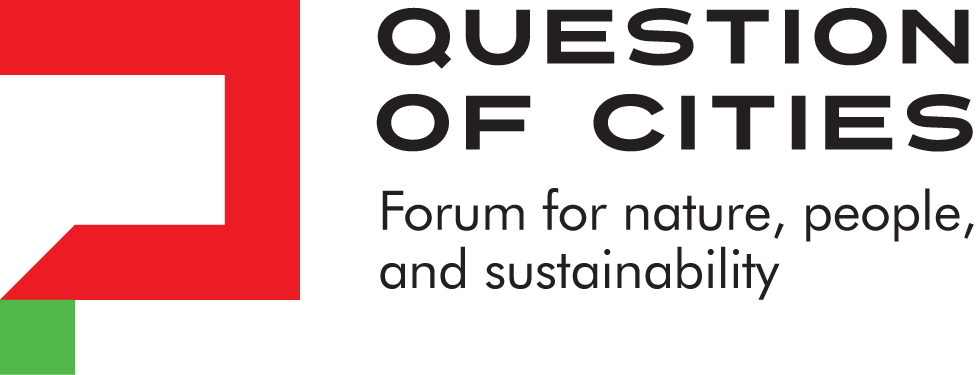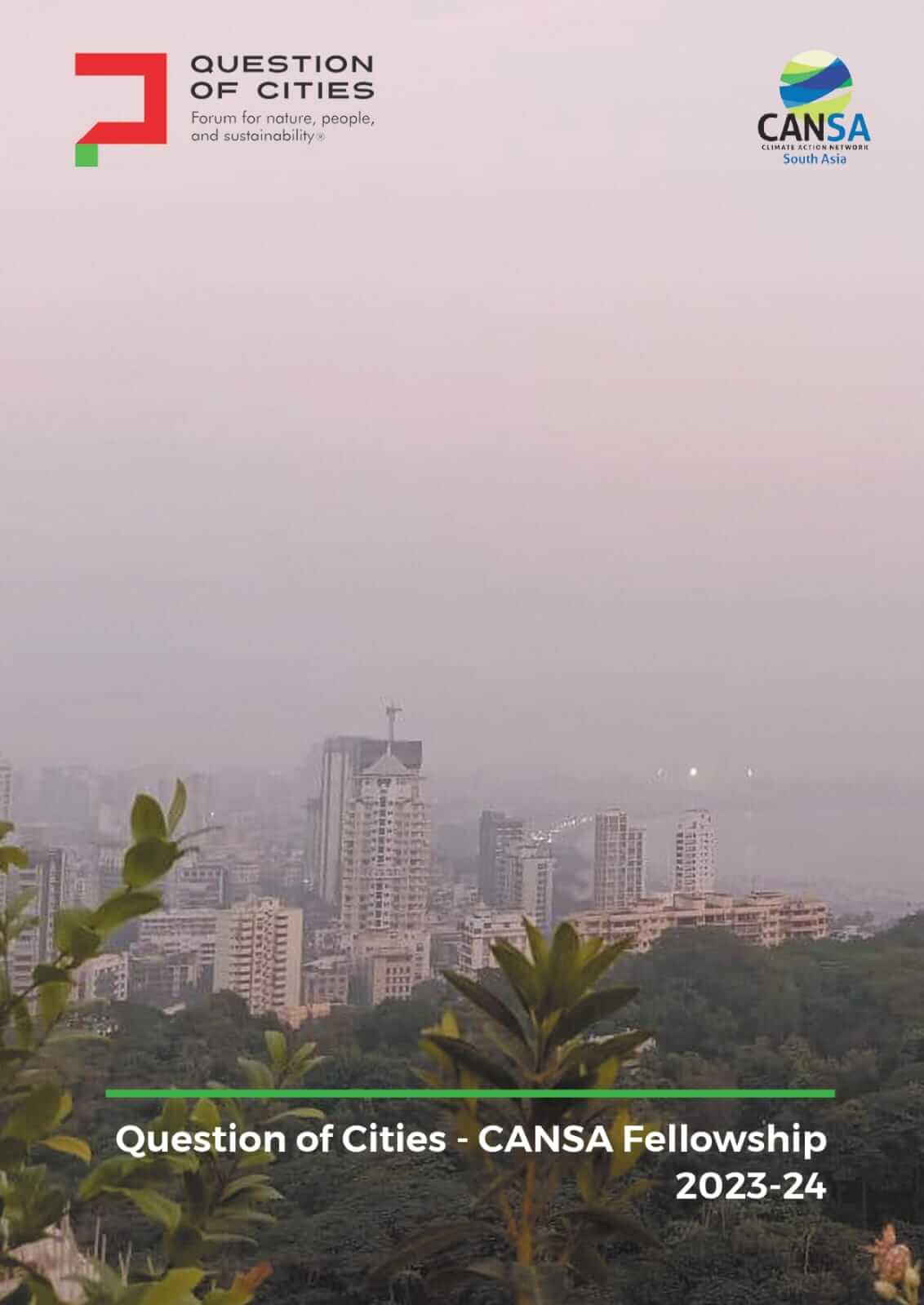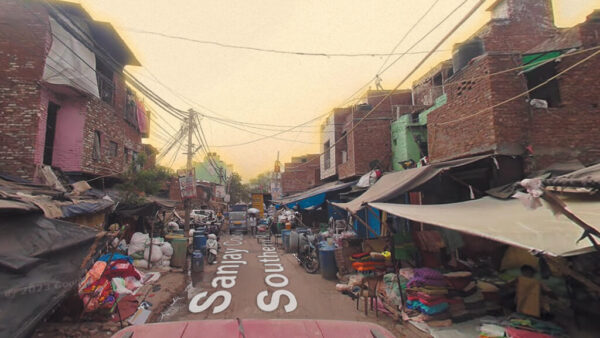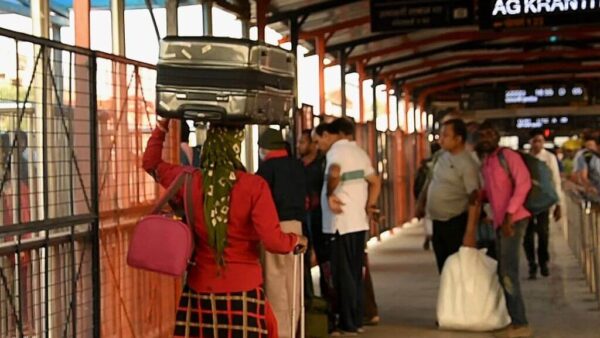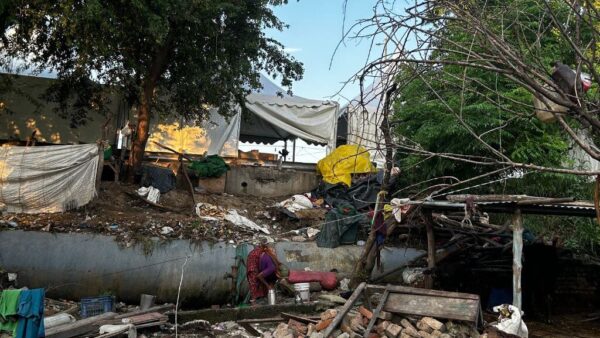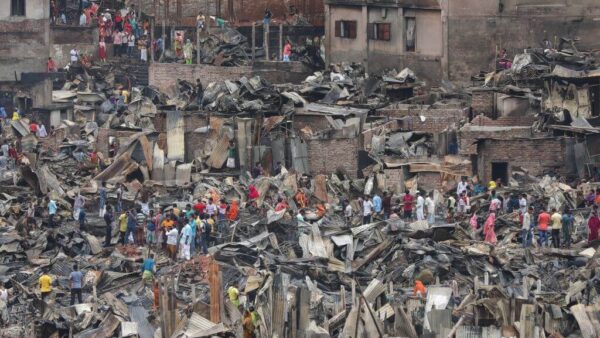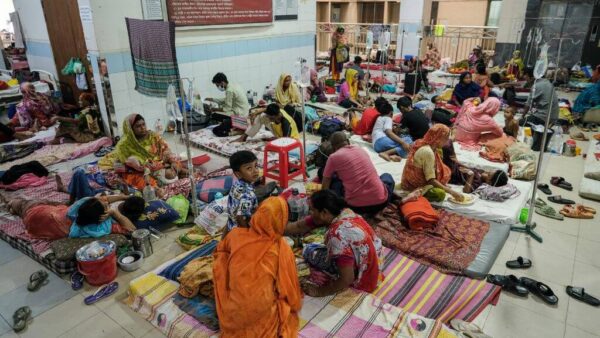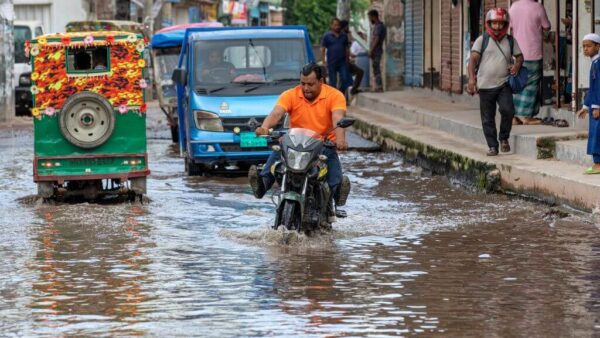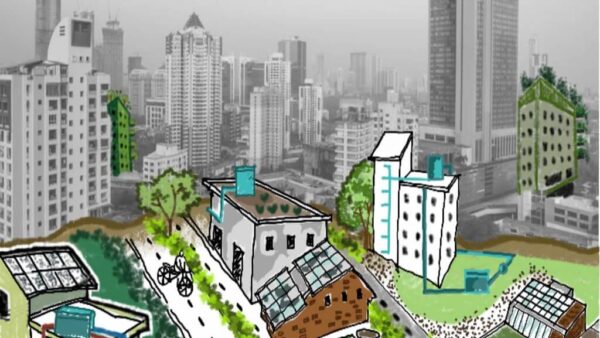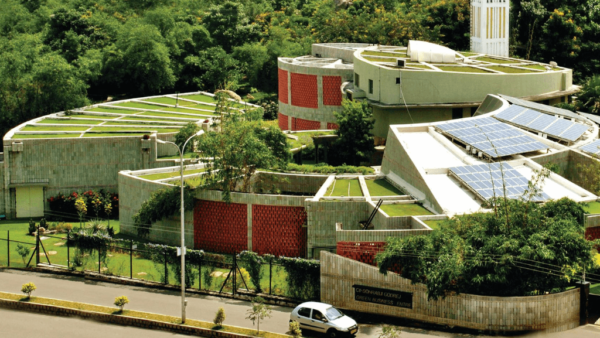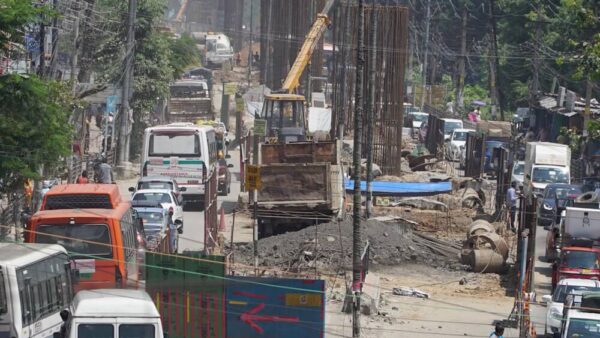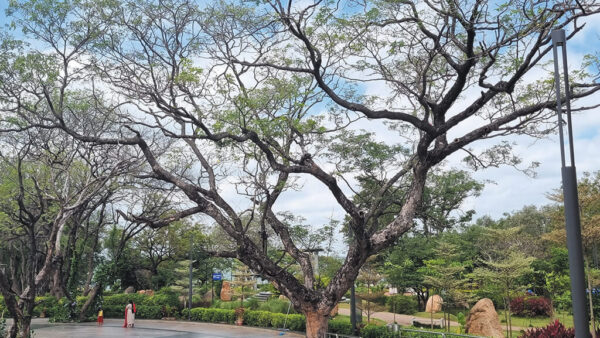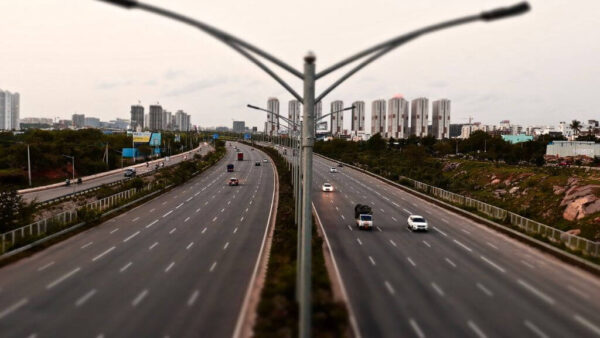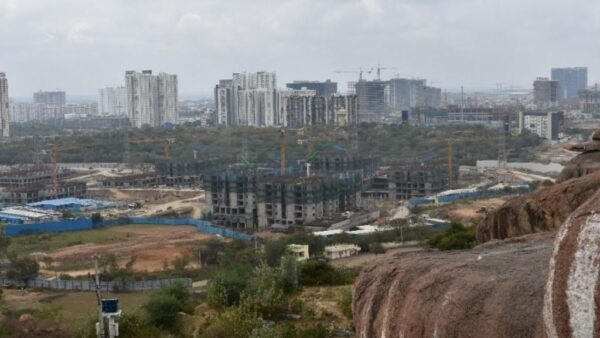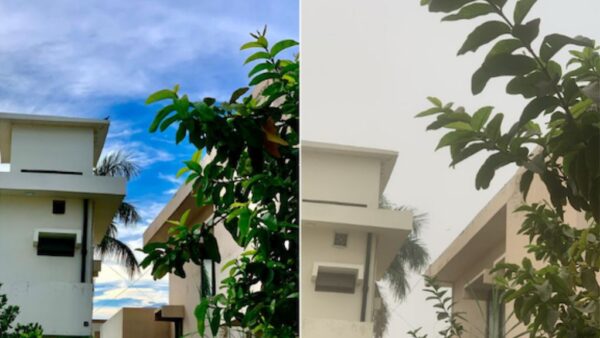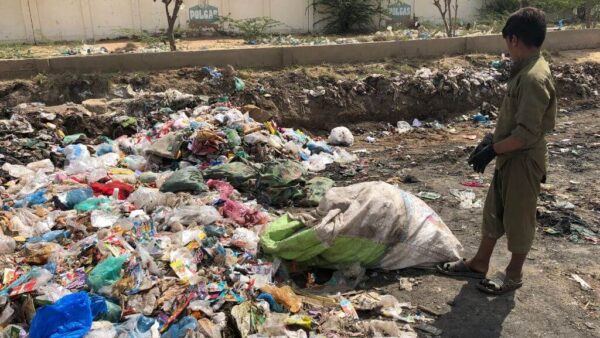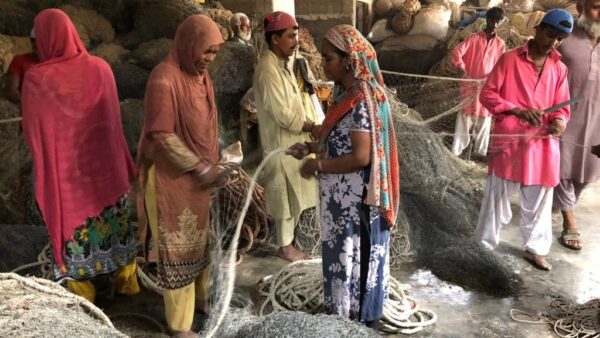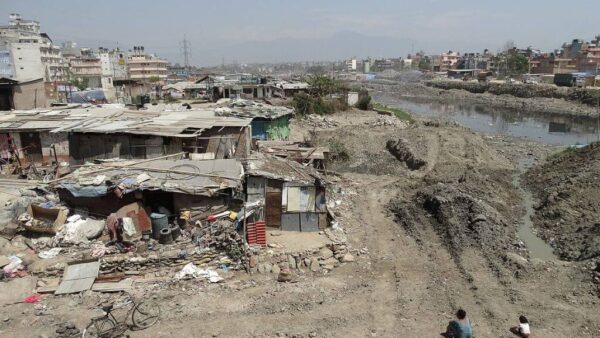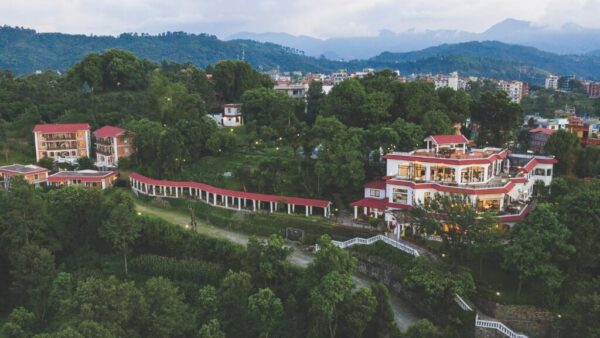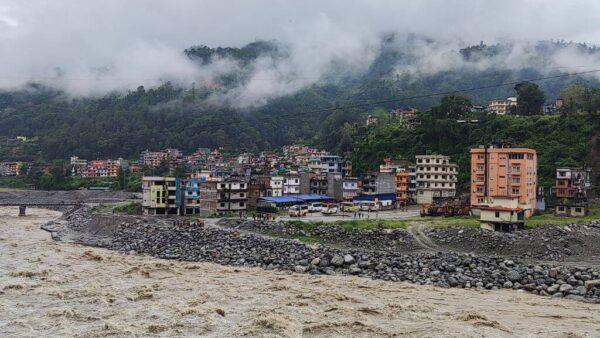
QoC-CANSA FELLOWSHIP ON CITIES AND CLIMATE CHANGE
Meet the selected QoC-CANSA Fellows
Six Fellows were selected, from hundreds of applications received from India, Pakistan, Nepal and Bangladesh, to research and report on various aspects of cities and Climate Change. Their work will be featured over the next six months in Question of Cities as they focus on themes ranging from housing challenges, demolitions, informal settlements to inequality and water inequity, and the impact of heat and floods on people in cities across the four countries.
Hrushikesh Patil is a Maharashtra-based independent journalist and environmental lawyer working with the Goa Foundation. His focus is on the impact of Climate Change-induced disasters on vulnerable communities. A member of the environmental communications and advocacy collective ‘Let India Breathe,’ Patil received the 12th Laadli Media & Advertising Awards for Gender Sensitivity besides other awards and fellowships.
Arshiya Syed
Hyderabad, India
Themes: Climate mitigation, sustainable development, urban poor
Proposal: Assessing the role of local planning and policies in mitigating Climate Change impact in Hyderabad, lives of urban poor
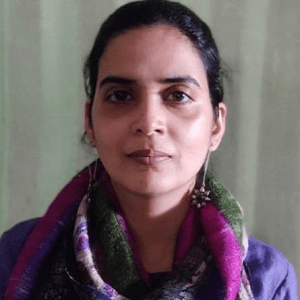
Arshiya Syed is the founder of an architecture and urban design firm, Studio Maqam, in Hyderabad. A graduate of the School of Planning and Architecture, New Delhi, she is an Urban Fellow at the Indian Institute of Human Settlements (IIHS) in Bengaluru. Syed is also a Visiting Faculty conducting urban design and housing studio in architecture schools.
Barasha Das and Harish Borah
Guwahati, India
Themes: Urban planning, urban floods and urban forests
Proposal: Manifestation of Climate Change in cities and its mitigation with focus on the north-eastern state of Assam
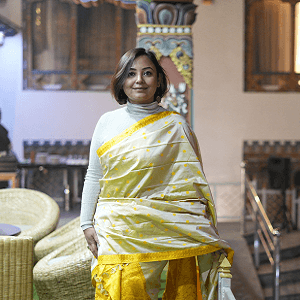
Barasha Das is an independent journalist based in Guwahati, Assam. She reports on the environment and Climate Change, and policies to combat climate disasters. Apart from having extensively reported on urban issues, she tells stories of people and places, their issues, history, and culture. She is also associated as a Research Writer with OnePointFive Tribe, a platform working for a net-zero carbon future.
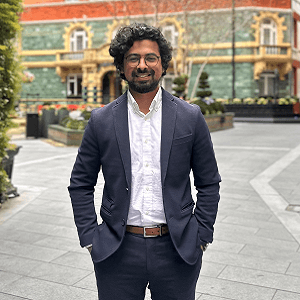
Harish Borah, subject expert in cost-carbon studies in the building industry, is the Principal ‘Carbon’ expert for ADW Developments (UK) and Founder of OnePointFive Tribe. His work is spread across the United Kingdom-European Union, the Middle East, and India. He went to Antarctica with the 2041 ClimateForce Antarctica Expedition and was named among India’s top 25 leading minds in sustainability by The Economic Times.
Hrushikesh Patil and Sejal Patel
New Delhi, India
Themes: Housing, inequality
Proposal: Unveiling the link – House demolitions and heightened vulnerability to heatwaves
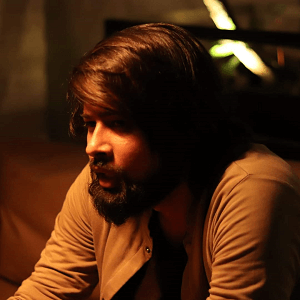
Hrushikesh Patil is a Maharashtra-based independent journalist and environmental lawyer working with the Goa Foundation. His focus is on the impact of Climate Change-induced disasters on vulnerable communities. A member of the environmental communications and advocacy collective ‘Let India Breathe,’ Patil received the 12th Laadli Media & Advertising Awards for Gender Sensitivity besides other awards and fellowships.
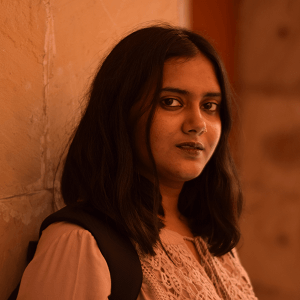
Sejal Patel, an independent journalist and filmmaker based in New Delhi, keeps a strong research focus on rural communities and data journalism, as well as the application of artificial intelligence (AI) to the fields. Patel holds a postgraduate degree in Convergent Journalism from AJ Kidwai Mass Communication Research Centre, Jamia Millia Islamia. Through her work, she aims to challenge established norms, foster social justice, and instigate transformative change.
Kushal Pokharel and Chhatra Karki
Kathmandu, Nepal
Themes: Informal settlements, water inequity, urbanising mid-hill towns
Proposal: Growing vulnerabilities of Nepal’s informal settlements, rapidly urbanising towns and mid-hill towns.

Pokharel is an independent researcher and science communicator based in Kathmandu, Nepal. His writings have appeared in leading national and international media outlets, including research journals. His research interests span natural resource management, water security, Climate Change and development with a focus on public policy and governance. He also serves as a faculty of research methods and skills.
Karki, a science journalist based in Kathmandu, Nepal, has rich experience in newspaper and online news portals. In recognition of his exceptional work, he was honoured with the Science and Technology Journalism Award from the Nepal Academy of Science and Technology in 2021. Chhatra’s expertise spans across topics, including environment, Climate Change, science, health, and current affairs.
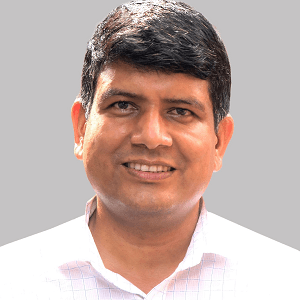
Karki, a science journalist based in Kathmandu, Nepal, has rich experience in newspaper and online news portals. In recognition of his exceptional work, he was honoured with the Science and Technology Journalism Award from the Nepal Academy of Science and Technology in 2021. Chhatra’s expertise spans across topics, including environment, Climate Change, science, health, and current affairs.
Sadiqur Rahman
Dhaka, Bangladesh
Themes: Planning response to Climate Change, housing and urban poor, Right to the City and health
Proposal: How to plan for urban-centric economy allowing migration of people to cities, housing and health of the urban poor across Bangladesh’s capital Dhaka, neighbouring Gazipur and Narayanganj.
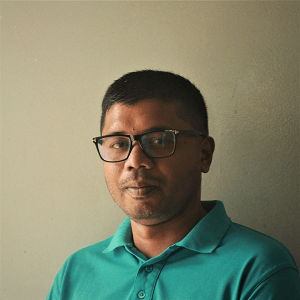
Sadiqur Rahman, postgraduate from the University of Dhaka, is currently employed as a journalist at The Business Standard. His 10-plus-year career in journalism includes wide reporting on Climate Change, biodiversity conservation, local business, and livelihood-related issues.
He is a member of the Thomson Reuters Foundation Alumni Club, Bangladesh. He won two anti-corruption media awards in 2014.
Zofeen Ebrahim
Karachi, Pakistan
Themes: Evictions and housing, flood mitigation, Climate challenges for Karachi
Proposal: Evictions and demolitions on the pretext of clearing up stormwater drains to reduce urban flooding, how Karachi should brace for the impact of Climate Change.
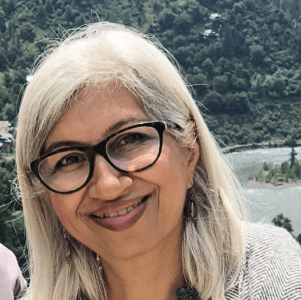
Zofeen T. Ebrahim is an independent journalist who has written extensively on development issues including Climate Change, urban infrastructure, water, energy, gender, and how these impact people’s lives.
She contributes regularly to the English daily, Dawn, as well as to international publications including the Inter Press Service, The Guardian, The Third Pole, Thomson Reuters Foundation, and the Index on Censorship.
Meet the selected QoC-CANSA Fellows
June 3, 2023
The QoC-CANSA Fellowship on cities and climate change is a collaborative effort to tell stories on themes ranging from housing challenges, demolitions, informal settlements to inequality and water inequity, and the impact of heat and floods on people in cities across four countries of South Asia.
Meet the fellows:
Hrushikesh Patil and Sejal Patel Sadiqur Rahman Barasha Das and Harish Borah
Arshiya Syed Zofeen Ibrahim Kushal Pokharel and Chhatra Karki
These six Fellows were selected, from hundreds of applications received from India, Pakistan, Nepal and Bangladesh, to research and report on various aspects of cities and Climate Change. Their work will be featured over the next six months in Question of Cities as they focus on themes ranging from housing challenges, demolitions, informal settlements to inequality and water inequity, and the impact of heat and floods on people in cities across the four countries.
Fellowship Stories
Hrushikesh Patil and Sejal Patel
Delhi, India
Sadiqur Rahman
Dhaka, Bangladesh
Barasha Das and Harish Borah
Guwahati, India
Arshiya Syed
Hyderabad, India
Themes: Climate mitigation, sustainable development, urban poor
Zofeen Ibrahim
Karachi, Pakistan
Kushal Pokharel and Chhatra Karki
Kathmandu, Nepal
The QoC-CANSA Fellowship on cities and climate change is a collaborative effort to tell stories on themes ranging from housing challenges, demolitions, informal settlements to inequality and water inequity, and the impact of heat and floods on people in cities across four countries of South Asia.
Meet the fellows:
Hrushikesh Patil and Sejal Patel Sadiqur Rahman Barasha Das and Harish Borah
Arshiya Syed Zofeen Ibrahim Kushal Pokharel and Chhatra Karki
These six Fellows were selected, from hundreds of applications received from India, Pakistan, Nepal and Bangladesh, to research and report on various aspects of cities and Climate Change. Their work will be featured over the next six months in Question of Cities as they focus on themes ranging from housing challenges, demolitions, informal settlements to inequality and water inequity, and the impact of heat and floods on people in cities across the four countries.
Arshiya Syed
Hyderabad, India
Themes: Climate mitigation, sustainable development, urban poor
Proposal: Assessing the role of local planning and policies in mitigating Climate Change impact in Hyderabad, lives of urban poor
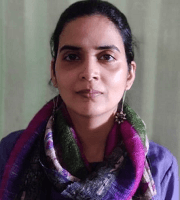 Arshiya Syed is the founder of an architecture and urban design firm, Studio Maqam, in Hyderabad. A graduate of the School of Planning and Architecture, New Delhi, she is an Urban Fellow at the Indian Institute of Human Settlements (IIHS) in Bengaluru. Syed is also a Visiting Faculty conducting urban design and housing studio in architecture schools.
Arshiya Syed is the founder of an architecture and urban design firm, Studio Maqam, in Hyderabad. A graduate of the School of Planning and Architecture, New Delhi, she is an Urban Fellow at the Indian Institute of Human Settlements (IIHS) in Bengaluru. Syed is also a Visiting Faculty conducting urban design and housing studio in architecture schools.
Barasha Das and Harish Borah
Guwahati, India
Themes: Urban planning, urban floods and urban forests
Proposal: Manifestation of Climate Change in cities and its mitigation with focus on the north-eastern state of Assam
 Barasha Das is an independent journalist based in Guwahati, Assam. She reports on the environment and Climate Change, and policies to combat climate disasters. Apart from having extensively reported on urban issues, she tells stories of people and places, their issues, history, and culture. She is also associated as a Research Writer with OnePointFive Tribe, a platform working for a net-zero carbon future.
Barasha Das is an independent journalist based in Guwahati, Assam. She reports on the environment and Climate Change, and policies to combat climate disasters. Apart from having extensively reported on urban issues, she tells stories of people and places, their issues, history, and culture. She is also associated as a Research Writer with OnePointFive Tribe, a platform working for a net-zero carbon future.
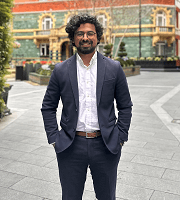 Harish Borah, subject expert in cost-carbon studies in the building industry, is the Principal ‘Carbon’ expert for ADW Developments (UK) and Founder of OnePointFive Tribe. His work is spread across the United Kingdom-European Union, the Middle East, and India. He went to Antarctica with the 2041 ClimateForce Antarctica Expedition and was named among India’s top 25 leading minds in sustainability by The Economic Times.
Harish Borah, subject expert in cost-carbon studies in the building industry, is the Principal ‘Carbon’ expert for ADW Developments (UK) and Founder of OnePointFive Tribe. His work is spread across the United Kingdom-European Union, the Middle East, and India. He went to Antarctica with the 2041 ClimateForce Antarctica Expedition and was named among India’s top 25 leading minds in sustainability by The Economic Times.
Hrushikesh Patil and Sejal Patel
New Delhi, India
Themes: Housing, inequality
Proposal: Unveiling the link – House demolitions and heightened vulnerability to heatwaves
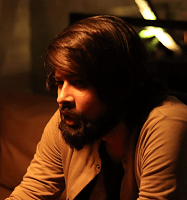 Hrushikesh Patil is a Maharashtra-based independent journalist and environmental lawyer working with the Goa Foundation. His focus is on the impact of Climate Change-induced disasters on vulnerable communities. A member of the environmental communications and advocacy collective ‘Let India Breathe,’ Patil received the 12th Laadli Media & Advertising Awards for Gender Sensitivity besides other awards and fellowships.
Hrushikesh Patil is a Maharashtra-based independent journalist and environmental lawyer working with the Goa Foundation. His focus is on the impact of Climate Change-induced disasters on vulnerable communities. A member of the environmental communications and advocacy collective ‘Let India Breathe,’ Patil received the 12th Laadli Media & Advertising Awards for Gender Sensitivity besides other awards and fellowships.
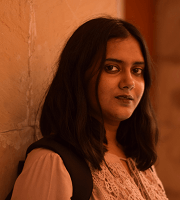
Sejal Patel, an independent journalist and filmmaker based in New Delhi, keeps a strong research focus on rural communities and data journalism, as well as the application of artificial intelligence (AI) to the fields. Patel holds a postgraduate degree in Convergent Journalism from AJ Kidwai Mass Communication Research Centre, Jamia Millia Islamia. Through her work, she aims to challenge established norms, foster social justice, and instigate transformative change.
Kushal Pokharel and Chhatra Karki
Kathmandu, Nepal
Themes: Informal settlements, water inequity, urbanising mid-hill towns
Proposal: Growing vulnerabilities of Nepal’s informal settlements, rapidly urbanising towns and mid-hill towns.
 Pokharel is an independent researcher and science communicator based in Kathmandu, Nepal. His writings have appeared in leading national and international media outlets, including research journals. His research interests span natural resource management, water security, Climate Change and development with a focus on public policy and governance. He also serves as a faculty of research methods and skills.
Pokharel is an independent researcher and science communicator based in Kathmandu, Nepal. His writings have appeared in leading national and international media outlets, including research journals. His research interests span natural resource management, water security, Climate Change and development with a focus on public policy and governance. He also serves as a faculty of research methods and skills.
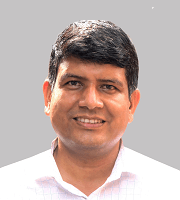 Karki, a science journalist based in Kathmandu, Nepal, has rich experience in newspaper and online news portals. In recognition of his exceptional work, he was honoured with the Science and Technology Journalism Award from the Nepal Academy of Science and Technology in 2021. Chhatra’s expertise spans across topics, including environment, Climate Change, science, health, and current affairs.
Karki, a science journalist based in Kathmandu, Nepal, has rich experience in newspaper and online news portals. In recognition of his exceptional work, he was honoured with the Science and Technology Journalism Award from the Nepal Academy of Science and Technology in 2021. Chhatra’s expertise spans across topics, including environment, Climate Change, science, health, and current affairs.
Sadiqur Rahman
Dhaka, Bangladesh
Themes: Planning response to Climate Change, housing and urban poor, Right to the City and health
Proposal: How to plan for urban-centric economy allowing migration of people to cities, housing and health of the urban poor across Bangladesh’s capital Dhaka, neighbouring Gazipur and Narayanganj.
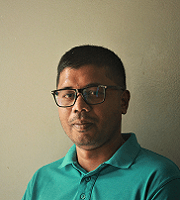
Sadiqur Rahman, postgraduate from the University of Dhaka, is currently employed as a journalist at The Business Standard. His 10-plus-year career in journalism includes wide reporting on Climate Change, biodiversity conservation, local business, and livelihood-related issues.
He is a member of the Thomson Reuters Foundation Alumni Club, Bangladesh. He won two anti-corruption media awards in 2014.
Zofeen Ebrahim
Karachi, Pakistan
Themes: Evictions and housing, flood mitigation, Climate challenges for Karachi
Proposal: Evictions and demolitions on the pretext of clearing up stormwater drains to reduce urban flooding, how Karachi should brace for the impact of Climate Change.
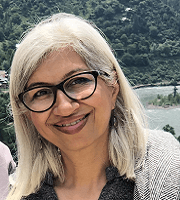
Zofeen T. Ebrahim is an independent journalist who has written extensively on development issues including Climate Change, urban infrastructure, water, energy, gender, and how these impact people’s lives.
She contributes regularly to the English daily, Dawn, as well as to international publications including the Inter Press Service, The Guardian, The Third Pole, Thomson Reuters Foundation, and the Index on Censorship.
——————————————————————————————————————————————————————
Drumrolls…
It gives us great pleasure to announce the selection of QoC-CANSA Fellows whose proposals made the final cut. Hearty congratulations to:
- Arshiya Syed, Hyderabad (India)
- Barasha Das and Harish Borah, Guwahati (India)
- Hrushikesh Patil and Sejal Patel, New Delhi (India)
- Kushal Pokharel, Kathmandu (Nepal)
- Sadiqur Rahman, Dhaka (Bangladesh)
- Zofeen Ebrahim, Karachi (Pakistan)
Welcome on board, we are excited to work closely with you over the next few months on issues of Climate Change in your cities to generate stories and research work which can draw attention and influence policy.
QoC-CANSA had an overwhelming response to the Fellowship call with many excellent proposals from all the four countries in South Asia, making it challenging for our esteemed jury, comprising environmentalists and media persons, to arrive at the most fabulous and fitting four. We decided to expand the canvas to select six Fellows instead of four as mentioned in the call.
Thank you to all those who responded to the call. We hope to be able to work with many of you in different ways in the future.
The breadth and depth of ideas in the large volume of applications we received over the past six weeks convince us that there is thought and commitment on issues of Climate Change and cities – from flooding and heat waves to changes in sea levels, urban inequality, and amenities such as housing and health – from young and experienced people in ecology, media and academia.
On behalf of QoC and CANSA, we extend our warmest congratulations to the six Fellows once again.
Best wishes,
Smruti Koppikar Sanjay Vashist
Founder Editor, QoC Director, CANSA
——————————————————————————————————————————————————————
THE FELLOWSHIP CALL
Among the most challenging phenomena of our time is Climate Change which manifests itself in extreme weather events from flooding to heatwaves, droughts to changes in sea levels and more, leaving direct and indirect impact on millions of people in cities. It is a “code red for humanity,” said the U.N. Secretary-General António Guterres in 2021 while releasing the Intergovernmental Panel on Climate Change (IPCC) report which had a troubling forecast for South Asia, projecting hotter weather, longer monsoon seasons, and increased droughts. India, Pakistan, Bangladesh, Nepal and Sri Lanka are threatened by increasing frequency and magnitude of extreme weather events with millions in their cities suffering the worst impact.
Climate Change is manifested in our cities in several ways, month after month, as extreme weather events. The historical congestion in cities, sub-standard amenities especially for the vulnerable, and existing urban inequalities make the climate impact worse, especially for the large mass of vulnerable people in cities. For stakeholders such as governments, it is business as usual even as the climate crisis worsens. What is called for is a sustained focus on these issues with original and in-depth research, reporting and photography work which can influence policy changes and decisions.
To facilitate in-depth work on the subject, Question of Cities (QoC) and Climate Action Network South Asia (CANSA) invite journalists, researchers and scholars to apply for the QoC-CANSA Fellowship to research and report on the following themes:
1) Climate Change and city planning response
2) Housing in cities
3) Urban inequality and right to the city
Terms of the Fellowship
- Four Fellowships, each of 3,000 Euros, are offered for the duration of four months beginning June 1, 2023.
- Selected fellows from India, Pakistan, Bangladesh and Nepal will work in close coordination with QoC using the lenses of urban infrastructure, vulnerable groups such as women and children, livelihoods and so on.
- Fellows are encouraged to produce ground stories and essays, use data and published reports in their work. Videos will also be accepted if accompanied by a text story.
- Fellows are expected to submit at least three pieces of work through the duration of the fellowship, one each at the end of July, August and September 2023. The release of the fellowship amount, directly to the Fellow, will depend on the work submitted and endorsed by QoC.
- All work will be published in QoC as well as on the CANSA website, including its partner organisations, after the editing process is completed. If Fellows who are employed by media organisations would like their work to be in their media, it may be published on the same day or afterwards with the following credit line “This story was supported by a fellowship awarded by Question of Cities and Climate Action Network South Asia.”
- Applications should be sent with clear proposals (in not more than 700 words) which will be judged on the basis of their relevance, impact, new information or insights, work plan, innovative story-telling including data visualization, and focus on vulnerable groups among other criteria. The jury comprises people with long experience and expertise in urban planning and the media. The decision of the jury will be final and binding.
- The medium of work will be English though Fellows can translate their work into Hindi, Bangla, Urdu, Nepali and other local languages for publication later.
- All applicants are required to provide a detailed budget for the amount including reasonable costs for travel and accommodation during reporting. The proposals should largely reflect the equipment the applicant already has access to such as cameras, drones, lighting, tripods and so on. Please note that the Fellowship does not support procuring new equipment.
Who can apply, how to apply:
- The Fellowship is open to journalists, researchers, scholars or academics with minimum experience of five years in print, online news portal, radio or television, or minimum of five years of research and academic work in India, Pakistan, Bangladesh and Nepal.
- Applicants must have a keen interest in Climate Change, environmental and developmental issues as well as demonstrable work shown through copies or links to their stories or academic work. Freelancers can provide reference of their previous work with by-lines, researchers and scholars may provide links to published papers in recognised journals.
- Applicants must provide a ‘letter of support’ from their current editor/employer, as the case may be, assuring the Fellow’s time to the QoC-CANSA Fellowship through its entire duration and, in the case of media, willingness to publish the articles written by the Fellows in their publication/channels.
- Groups of journalists or researchers or academics are eligible to apply but the application must be made in the name of one lead applicant who will be responsible for all communication with QoC-CANSA and receive funds on the group’s behalf, if awarded.
- All applications may be sent by email to [email protected] The last date for applications with proposals (in not more than 700 words), work plan, budget details, and support letter from your organisation (if applicable) is May 21, 2023.
- In deference to many requests, the deadline to send in your applications now extended to May 25, 2023.
- Selected Fellows are expected to follow ethical procedures during field work, and display a strong sense of respect for people and their culture, as well as seek appropriate and due consent from people they meet and interview or photograph. All representation of data and people is the sole responsibility of the selected fellows and QoC-CANSA shall not take responsibility for it.
For any questions or clarifications, write to [email protected]
About us:
Question of Cities is India’s online journal at the intersection of urbanisation, ecology, and equity. Once every fortnight, it publishes essays and ground-reported stories on cities from ecological and social perspectives, and a consistent lens of sustainability in the context of Climate Change. From natural and built environments to community chronicles, gender, and Right to the City, the journal has published more than 100 essays and ground stories from nearly 20 cities so far written by scholars, experts, journalists and community writers. It is both a forum for dialogue on these subjects as well as a repository of in-depth work. We are at www.questionofcities.org and on social media as @questionofcities_ on Instagram and @CitiesQuestion on Twitter.
Climate Action Network South Asia (CANSA) is Asia’s largest coalition of NGOs addressing the climate crisis. With almost 300 member organisations from eight South Asian countries, CANSA promotes sustainable climate, energy and development policies in India, Nepal, Bhutan, Bangladesh, Sri Lanka, Maldives, Pakistan and Afghanistan. Find us online at www.cansouthasia.net; Twitter: @CANSouthAsia; Facebook: Climate Action Network South Asia (CANSA); and LinkedIn: CANSouthAsia
——————————————————————————————————————————————————————
Among the most challenging phenomena of our time is Climate Change which manifests itself in extreme weather events from flooding to heatwaves, droughts to changes in sea levels and more, leaving direct and indirect impact on millions of people in cities. It is a “code red for humanity,” said the U.N. Secretary-General António Guterres in 2021 while releasing the Intergovernmental Panel on Climate Change (IPCC) report which had a troubling forecast for South Asia, projecting hotter weather, longer monsoon seasons, and increased droughts. India, Pakistan, Bangladesh, Nepal and Sri Lanka are threatened by increasing frequency and magnitude of extreme weather events with millions in their cities suffering the worst impact.
Climate Change is manifested in our cities in several ways, month after month, as extreme weather events. The historical congestion in cities, sub-standard amenities especially for the vulnerable, and existing urban inequalities make the climate impact worse, especially for the large mass of vulnerable people in cities. For stakeholders such as governments, it is business as usual even as the climate crisis worsens. What is called for is a sustained focus on these issues with original and in-depth research, reporting and photography work which can influence policy changes and decisions.
To facilitate in-depth work on the subject, Question of Cities (QoC) and Climate Action Network South Asia (CANSA) invite journalists, researchers and scholars to apply for the QoC-CANSA Fellowship to research and report on the following themes:
1) Climate Change and city planning response
2) Housing in cities
3) Urban inequality and right to the city
Terms of the Fellowship
- Four Fellowships, each of 3,000 Euros, are offered for the duration of four months beginning June 1, 2023.
- Selected fellows from India, Pakistan, Bangladesh and Nepal will work in close coordination with QoC using the lenses of urban infrastructure, vulnerable groups such as women and children, livelihoods and so on.
- Fellows are encouraged to produce ground stories and essays, use data and published reports in their work. Videos will also be accepted if accompanied by a text story.
- Fellows are expected to submit at least three pieces of work through the duration of the fellowship, one each at the end of July, August and September 2023. The release of the fellowship amount, directly to the Fellow, will depend on the work submitted and endorsed by QoC.
- All work will be published in QoC as well as on the CANSA website, including its partner organisations, after the editing process is completed. If Fellows who are employed by media organisations would like their work to be in their media, it may be published on the same day or afterwards with the following credit line “This story was supported by a fellowship awarded by Question of Cities and Climate Action Network South Asia.”
- Applications should be sent with clear proposals (in not more than 700 words) which will be judged on the basis of their relevance, impact, new information or insights, work plan, innovative story-telling including data visualization, and focus on vulnerable groups among other criteria. The jury comprises people with long experience and expertise in urban planning and the media. The decision of the jury will be final and binding.
- The medium of work will be English though Fellows can translate their work into Hindi, Bangla, Urdu, Nepali and other local languages for publication later.
- All applicants are required to provide a detailed budget for the amount including reasonable costs for travel and accommodation during reporting. The proposals should largely reflect the equipment the applicant already has access to such as cameras, drones, lighting, tripods and so on. Please note that the Fellowship does not support procuring new equipment.
Who can apply, how to apply:
- The Fellowship is open to journalists, researchers, scholars or academics with minimum experience of five years in print, online news portal, radio or television, or minimum of five years of research and academic work in India, Pakistan, Bangladesh and Nepal.
- Applicants must have a keen interest in Climate Change, environmental and developmental issues as well as demonstrable work shown through copies or links to their stories or academic work. Freelancers can provide reference of their previous work with by-lines, researchers and scholars may provide links to published papers in recognised journals.
- Applicants must provide a ‘letter of support’ from their current editor/employer, as the case may be, assuring the Fellow’s time to the QoC-CANSA Fellowship through its entire duration and, in the case of media, willingness to publish the articles written by the Fellows in their publication/channels.
- Groups of journalists or researchers or academics are eligible to apply but the application must be made in the name of one lead applicant who will be responsible for all communication with QoC-CANSA and receive funds on the group’s behalf, if awarded.
- All applications may be sent by email to [email protected] The last date for applications with proposals (in not more than 700 words), work plan, budget details, and support letter from your organisation (if applicable) is May 21, 2023.
- In deference to many requests, the deadline to send in your applications now extended to May 25, 2023.
- Selected Fellows are expected to follow ethical procedures during field work, and display a strong sense of respect for people and their culture, as well as seek appropriate and due consent from people they meet and interview or photograph. All representation of data and people is the sole responsibility of the selected fellows and QoC-CANSA shall not take responsibility for it.
For any questions or clarifications, write to [email protected]
About us:
Question of Cities is India’s online journal at the intersection of urbanisation, ecology, and equity. Once every fortnight, it publishes essays and ground-reported stories on cities from ecological and social perspectives, and a consistent lens of sustainability in the context of Climate Change. From natural and built environments to community chronicles, gender, and Right to the City, the journal has published more than 100 essays and ground stories from nearly 20 cities so far written by scholars, experts, journalists and community writers. It is both a forum for dialogue on these subjects as well as a repository of in-depth work. We are at www.questionofcities.org and on social media as @questionofcities_ on Instagram and @CitiesQuestion on Twitter.
Climate Action Network South Asia (CANSA) is Asia’s largest coalition of NGOs addressing the climate crisis. With almost 300 member organisations from eight South Asian countries, CANSA promotes sustainable climate, energy and development policies in India, Nepal, Bhutan, Bangladesh, Sri Lanka, Maldives, Pakistan and Afghanistan. Find us online at www.cansouthasia.net; Twitter: @CANSouthAsia; Facebook: Climate Action Network South Asia (CANSA); and LinkedIn: CANSouthAsia
